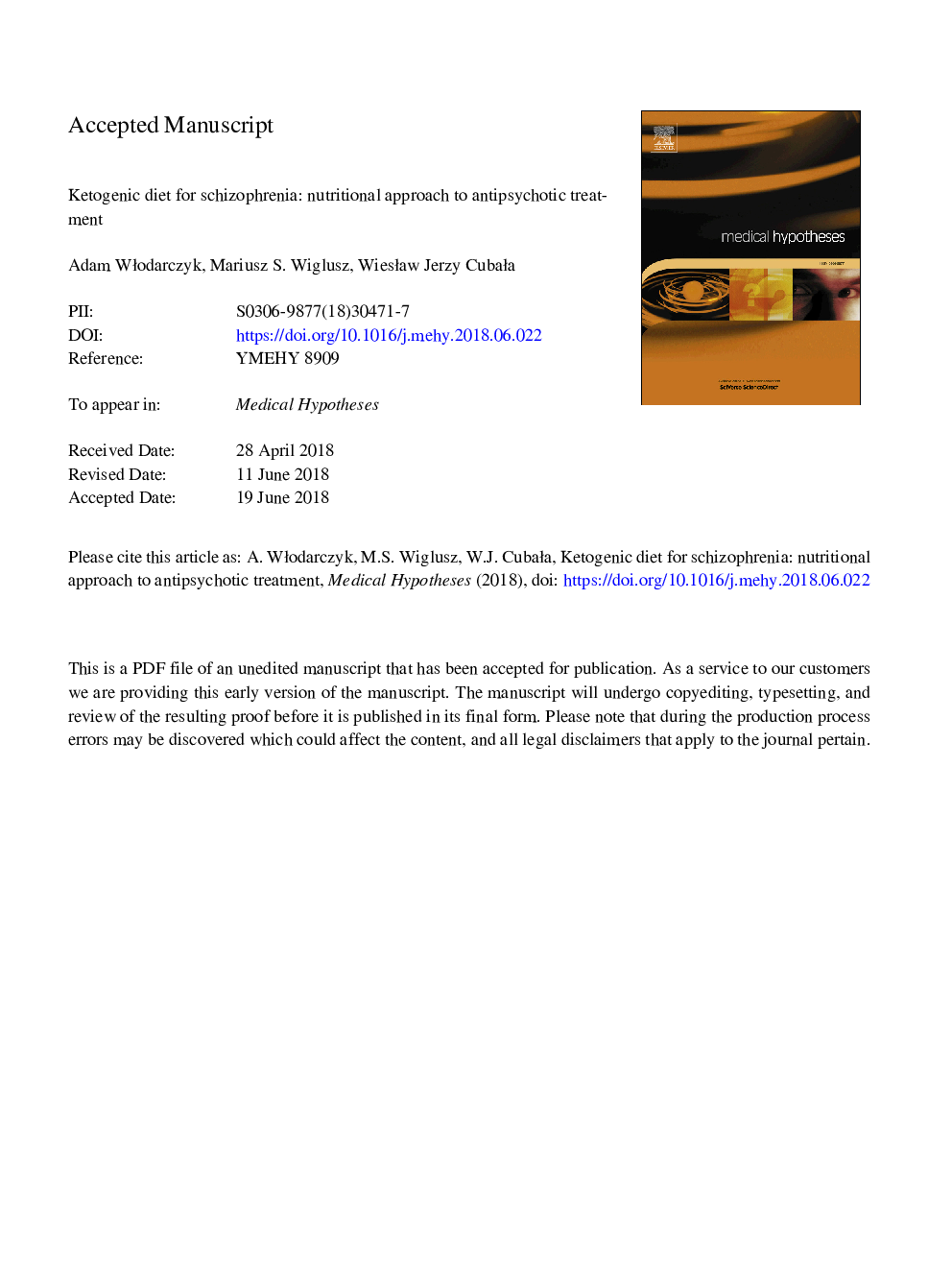| Article ID | Journal | Published Year | Pages | File Type |
|---|---|---|---|---|
| 8515271 | Medical Hypotheses | 2018 | 11 Pages |
Abstract
Schizophrenia is a mental disorder that mostly appears in the second or third decade of life with no consistent appearance. The first-line pharmacological treatment are antipsychotic drugs, which mainly act by suppressing the activity of dopamine. Unfortunately many of schizophrenic patients suffer from persistent positive or negative symptoms that cannot be fully treated with available medication. With exploration on the possible causes of the disease there is evidence on dopaminergic transmission defects, there is a need to find more holistic way in treating the disease and a diet regimen could be one of them. Ketogenic diet, which is a popular diet regimen that consists in low-carbohydrate (about 30-50â¯g/day), medium-protein (up to 1â¯g/kg daily) and high-fat intake (around 80% of daily calories) mainly known for its helpful role in weight-loss. The key mechanism is to generate ketosis. A state in which ketones bodies in the blood provides energy part of the body's energy comes from ketone bodies in the blood. Possible hypothesis can be that ketogenic diet changes the ratio of GABA:glutamate in favor of GABA, by suppressing the catabolism and increasing the synthesis of GABA as well as glutamate metabolism, which could help to compensate the disrupted GABA levels in schizophrenic brain, leading to possible better outcome of the disease regarding symptomatology and preventing the weight-gain regarding some medications used and the correlating diseases responsible for weight gain.
Related Topics
Life Sciences
Biochemistry, Genetics and Molecular Biology
Developmental Biology
Authors
Adam WÅodarczyk, Mariusz S. Wiglusz, WiesÅaw Jerzy CubaÅa,
